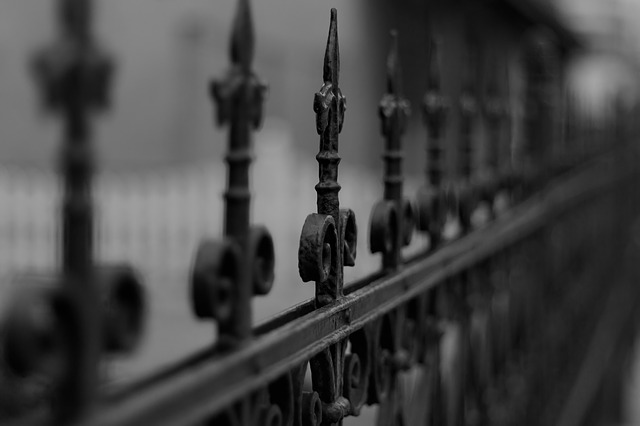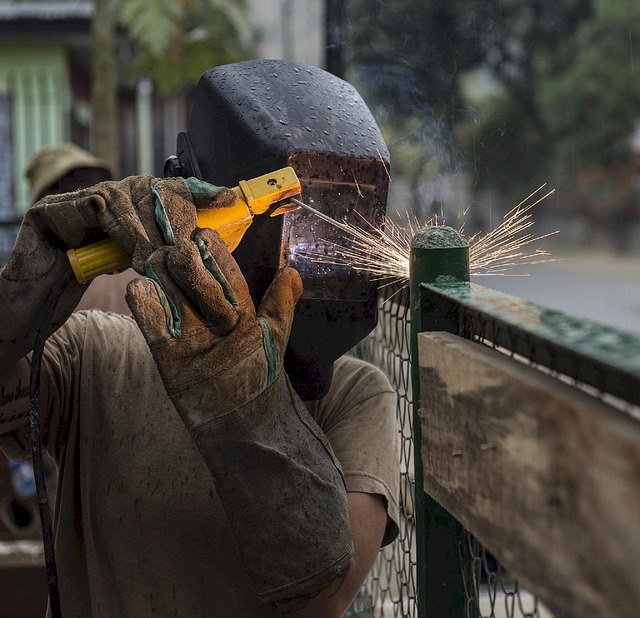Fencing Quality: How Can You Tell a Good Fence from a Shoddy One?
It can be a lot of fun visiting fencing showrooms and shopping around for the right solution for your home. But what should you look out for when testing out the fencing samples in the showrooms? And what are the right questions to ask the salesperson?
There can be vast differences in the level of product quality that fencing companies are capable of providing. So, it is important to know what to look out for.
We’ve put together some top tips for you to follow – which should help enable you to identify quality products from shoddy materials and workmanship.
Materials

In order to get a fence that will stand the test of time, you’ll want to make sure that the product is made from high-quality materials and components.
Steel and aluminium are both great options for low-maintenance, durable fencing, but it’s important to know the difference between the two, as well as the difference in quality that you can come across.
Aluminium
- Aluminium is a relatively inexpensive fencing material when compared to steel, so the price of the fencing should reflect that when compared to similar steel options.
- It is also a relatively lightweight metal. So, if security is a high priority for you in your fencing, make sure the fencing contractor uses high-quality aluminium, with thick slats or tubes. At Fencemakers, the Australian aluminium we use is significantly thicker than the imported aluminium used by many other contractors. Be sure to feel, tap, lift and swing the fencing samples. The aluminium should feel strong and should not be flimsy or easily pliable.
Steel
- Steel should feel much heavier and sturdier than even the highest quality aluminium.
- While steel is an extremely robust and durable metal, low-quality and un-treated steel can rust over time. This is especially the case in wet and humid weather conditions. So, ask if the steel has been pre-galvanised to make it rust-proof.
- Ask too whether the steel used in the fencing is Australian or it is imported. Imported steel tends not to be pre-galvanised. Furthermore, the seam of the steel is usually at the edge of the tubing. This means splitting can occur after exposure to the elements.
Colour / Paint
Most people don’t opt for the silver look of aluminium and steel – they want their fencing to complement their home. If this is the case for you, ask about how the fence is coloured. Is it painted, coated in vinyl, or powder coated?
Powder coating is the best option to go for here, as it is the most durable solution. The colour is treated onto the metal using a five-step process that binds the colour to the metal. As well as giving the metal an extra layer of protection and durability, it also means that the colour will not chip or peel off – which isn’t the case with paint or vinyl coating.
Welding Quality

The quality of the welds at the joining points of the fence is one of the most important factors you will need to consider. This determines the strength and durability of the fence. And you don’t want the welds to start coming apart over time.
When viewing the samples provided by the vendors in the showroom, remember to examine the welds. Here are a few things to look out for:
- Any imperfections, such as bubbling, cracking and metal beading that does not look uniform in size and shape. While it is virtually impossible to create a weld that is perfectly uniform, it should look clean and neat with no gross imperfections.
- Pay particular attention to any areas where oxygen could get into the interior of the weld, as this can lead to oxidation, which can make the weld brittle.
- As you examine each sample, push and pull on the joints to ensure that they feel tough and sturdy. There shouldn’t be any give at the welded joints, as this is a sign of a weak or improper weld.
- Another very important question when it comes to steel fencing is to ask what steel is used in the welds. Even if you’ve covered this question when asking about the steel used in the slats or tubing, ask about the welds specifically. Many fencing suppliers scrimp on quality and use mild steel for the welds. This effectively means the structural part of the fencing is not rust-proof. In turn, this could lead to you having to fork out for fixes and replacements sooner than you thought! So, make sure the welds are made of a high-quality stainless-steel which is rust-proof.
Screws, Hinges & Other Fixtures
Similar to establishing the quality of the welds, ask about the screws, hinges and bolts they use. Are these stainless too? If not they will rust quickly and need to be replaced after a season or two in the rain and/or humidity in Perth!
Fencemakers Offers High-Quality Fencing Installations
Here at Fencemakers, we pride ourselves on creating aluminium and steel fences and gates that are of the highest quality in Perth and Western Australia. We are committed to excellence in every fence and gate we create, and we offer a fifteen-year workmanship warranty on any fence or gate we install.
Get in touch with us today or request an online quote so we can start creating the perfect fence to suit your needs. Or visit our showroom in Malaga and feel free to quiz us on all of the questions above!